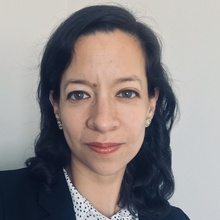An Immersive Field Placement Bridging the Transition to Practice
Law students in their final semester of law school may opt to participate in the New York Pro Bono Scholars Program (NYPBSP). The NYPBSP is a unique and innovative program developed by the New York Court of Appeals intended to better assist students in preparing for the actual practice of law, impress upon them the value of public service at the start of their careers, and provide much-needed assistance to those of limited means in our state.
Students spend their final semester of law school working full-time for 12 weeks providing pro bono legal services through an academic field placement. Participating students may also take the New York Bar Exam in February, prior to graduation. Upon successful completion of the program, passage of the bar exam, and all other graduation and bar admission requirements, students will be able to be admitted to practice as a member of the New York Bar. Students may also be able to seek admission in other UBE jurisdictions.
The New York Pro Bono Scholars Guide provides a full description of the program requirements. Students participate under the supervision of a law school faculty member and a placement supervisor. Students may seek placements with a variety of organization, including non-profit legal services providers or government offices, so long as the student’s work is exclusively pro bono.

Class of 2022
"Participating in the New York Pro Bono Scholars Program allowed me to get more experience working in public service through Iowa Law's Immigration Advocacy Clinical Law Program, cultivate a stronger professional network in the field I plan to enter, and gain early admission to the NY Bar. In a way, this program gave me the gift of time. It let me spend my final semester doing exactly what I came here to do and end law school on a high note."
Frequently Asked Questions
What are the requirements for completion of the NYPBSP?
The NYPBSP requires students to work full-time in their placements for at least 12 weeks and participate in a seminar component through Iowa Law. Students earn 12 credits (10 credits field work and 2 credits seminar).
The academic component of the program will be taught by a member of the law school faculty and allows students to reflect on their work, explore their ethical obligations, and further develop their practical skills.
Depending on the interests of participating students, the seminar may incorporate Iowa Law alumni guest speakers on aspects of public interest practice and opportunities for networking and mentoring with Iowa Law alumni.
Who is eligible for participation in the program?
Students must:
- Be in their final year of law school and must be in good academic standing
- Have completed (1) all requirements for graduation other than experiential credits; (2) Evidence; and (3) either one Criminal Procedure course or Business Associations course
- Be eligible for admittance under the Rules of the New York Court of Appeals.
Students are recommended to take and pass the MPRE and the New York Law Course/New York Law Exam before entering the program.
What kinds of work qualifies for the NYPBSP?
Work done for the purpose of the NYPBSP must be full-time, pro bono, supervised law work on behalf of those unable to pay for legal representation. The placement should provide the opportunity for client contact or should be for the benefit of an identifiable client. Work done for the benefit of “disadvantaged individuals” generally, but not for specific individuals does not qualify under the program.
How do I apply to the New York Pro Bono Scholars Program?
Students interested in the program should reach out to the Iowa Law Field Placement Director, Prof. June Tai, to learn more in the fall semester 2L year.
In their 2L year, students should plan classes carefully to prepare for a possible early bar exam, followed by a semester away from the law school. Students who wish to apply should indicate their intention to participate in the NYPBSP the summer before their 3L year. During the 3L summer and early in the Fall semester, 3L year, students will seek and apply to potential placements; Iowa Law is available to support this process. Final applications for enrollment must be approved by both Iowa Law and the NYPBSP.
Do placements have to be in New York?
No, placements can be anywhere as long as they meet the other requirements of the program. There is no restriction to New York, and prior participants have chosen to work in other jurisdictions, such as Washington, DC.
When will students participate in the program?
Students participate in the final semester of their 3L year. Pro Bono Scholars should plan to devote the bulk of their time to studying for the February bar, beginning after finals conclude in the fall semester 3L year. Immediately after taking the New York bar exam in February, Pro Bono Scholars begin their field work experience. The program lasts 12 weeks and runs until late May.
